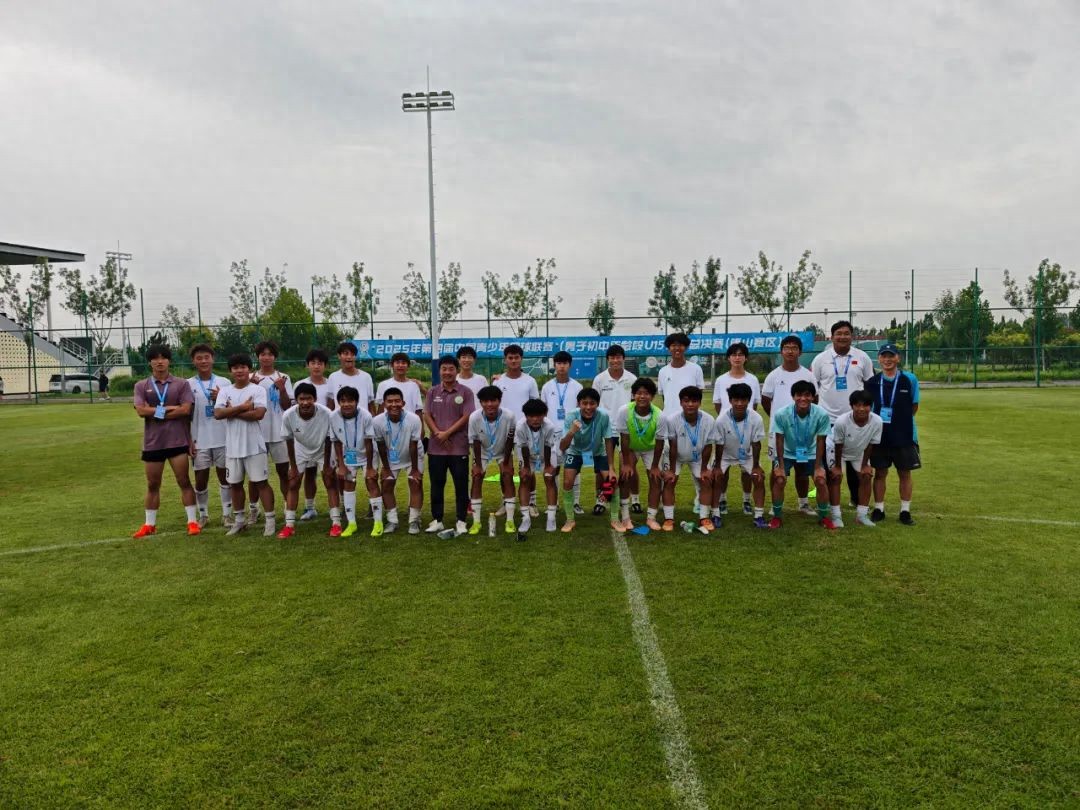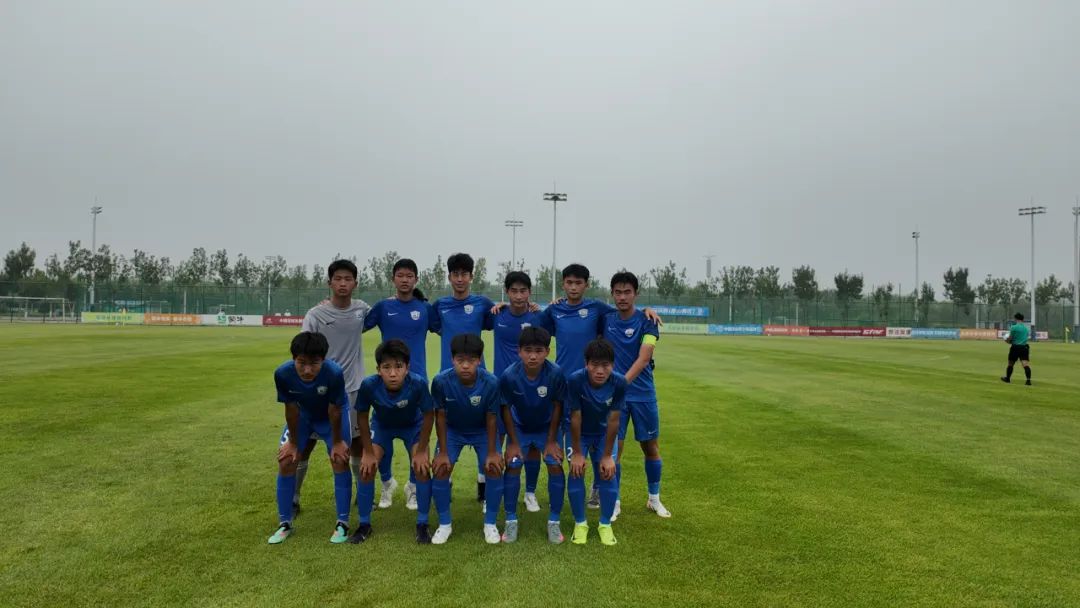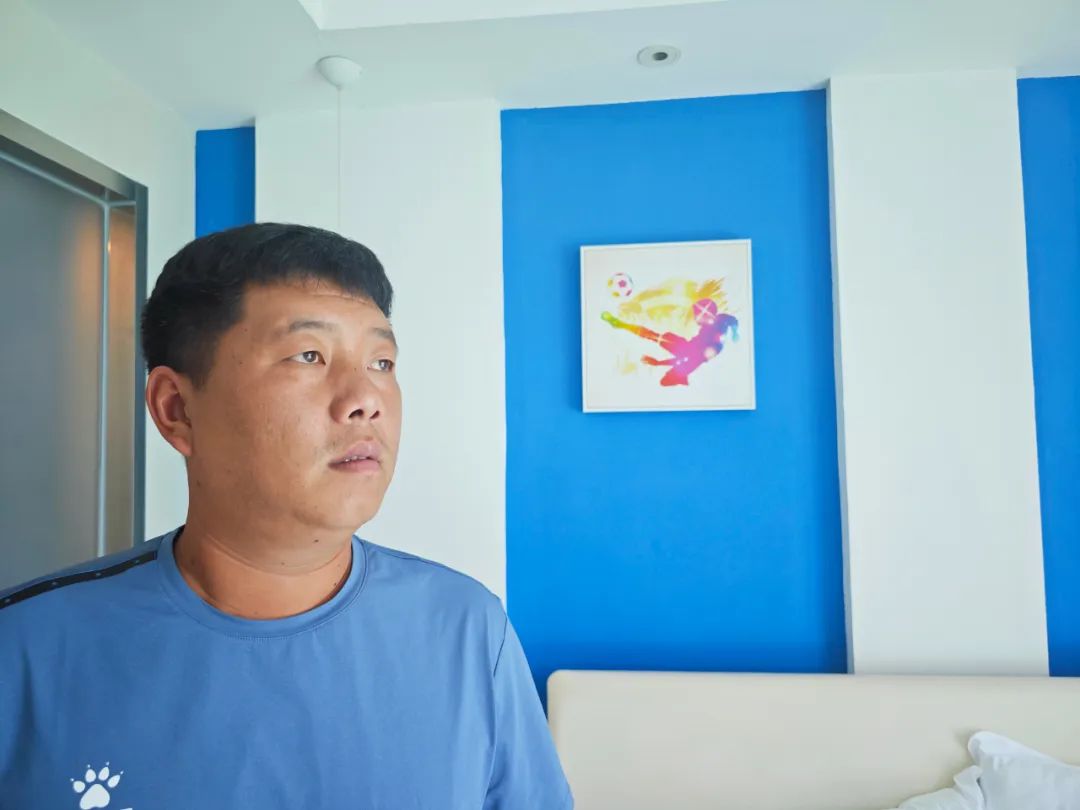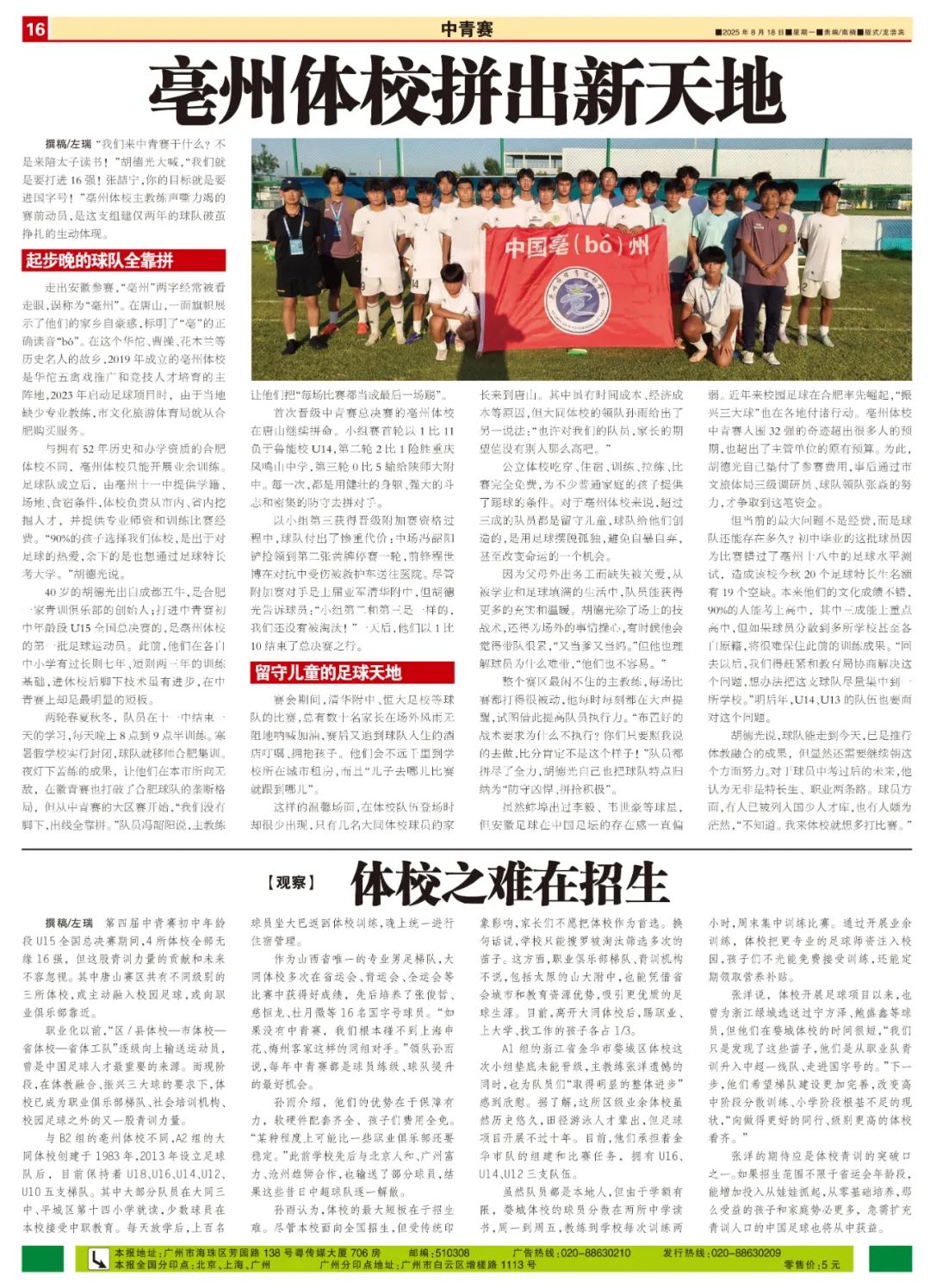The main challenge for sports schools lies in student recruitment.

Written by Zuo Rui During the U15 National Finals of the 4th China Youth Championship, none of the four sports schools made it into the top 16, but the significance and future of this youth training force should not be underestimated. In Tangshan, three sports schools at various levels are either proactively joining school football programs or aligning themselves with professional clubs.
Before the professionalization era, the progression from district/county sports schools to municipal, then provincial sports schools, and finally to provincial teams was the main pipeline for football talent in China. Nowadays, under the push for sports-education integration and the revitalization of ball sports, sports schools have become another key pillar in youth training alongside professional club academies, private training institutions, and campus football.
Unlike Bozhou Sports School in Group B2, Datong Sports School in Group A2 was established in 1983 and set up its football team in 2013. It currently maintains five age-group teams: U18, U16, U14, U12, and U10. Most players attend Datong No.3 Middle School or Pingcheng District No.14 Primary School, while a few receive vocational education at the school itself. After classes each day, over a hundred players take the bus back to the sports school for training and stay together under unified accommodation management at night.
As the only specialized boys’ football team in Shanxi Province, Datong Sports School has achieved strong results in the Provincial Games, Youth Games, and National Games, having produced 16 national-level players such as Zhang Junzhe, Ci Henglong, and Du Yuezheng. “Without the China Youth Championship, we’d never get to play against teams like Shanghai Shenhua or Meizhou Hakka,” said team leader Sun Yu. “The annual championship is the best opportunity for our players to gain experience and for the team to improve.”

According to Sun Yu, their strengths lie in robust support, comprehensive facilities, and completely free tuition for the children. “In some ways, we might even be more stable than certain professional clubs.” The school has previously cooperated with Beijing Renhe, Guangzhou R&F, and Cangzhou Mighty Lions, sending some players to these teams, but all of these former Chinese Super League clubs have since disbanded.
Sun Yu believes the biggest weakness of sports schools is the difficulty in recruiting students. Although the school enrolls nationwide, traditional perceptions mean parents rarely consider sports schools as their first choice. In other words, the school can only pick up players who have been passed over multiple times elsewhere. In this regard, not only do club academies and youth training institutions have an advantage, but even schools like Shanxi University Affiliated Middle School in Taiyuan can attract better football talent thanks to the capital city’s educational resources. Currently, after leaving Datong Sports School, about one-third of the students go on to play professionally, another third pursue university studies, and the remaining third find jobs.
Jinhua Wucheng District Sports School from Zhejiang Province finished last in Group A1 and did not advance, but head coach Zhang Yang (pictured below) was comforted by the team’s “clear overall improvement.” This long-established district-level amateur sports school has produced many track and field and swimming talents, but its football program only started a decade ago. The school is now responsible for forming and competing as the Jinhua City team, with three squads: U16, U14, and U12.

Although all players are local, due to limited school placements, Wucheng Sports School’s footballers attend two different middle schools. From Monday to Friday, coaches visit the schools for two-hour training sessions, while weekends are reserved for centralized training and matches. Through these amateur sessions, the sports school brings more professional football coaching into the schools, allowing children to receive free training and regular nutritional subsidies.
Zhang Yang shared that since launching its football program, the school has also recommended players like Ning Fangze and Bao Shengxin to Zhejiang Greentown, but their time at Wucheng Sports School was brief. “We only discovered these talents—they progressed from professional club academies to the top-tier league and the national team.” Next, they hope to further improve their youth system, addressing the current issues of scattered training in high school and insufficient foundations in elementary school, and to learn from better-performing peers and higher-level sports schools.
Zhang Yang’s hopes may be one way for sports school youth training to break through. If recruitment were not limited to the Provincial Games age group, and more investment was made to start nurturing talent from a young age and from scratch, more children and families would benefit, and Chinese football—which urgently needs to expand its youth player base—would also gain.



Wonderfulshortvideo
User SportScoop has posted a video.


User pandatv has posted a video.


User FieldFrenzy has posted a video.


User FieldFrenzy has posted a video.


Mo Salah on achieving more than he could've ever dreamed of as a young boy in Egypt 👏🏆


blueco enciso chelsea signing todd boehly


Packing 99s in August is kinda fun








 Links
Links
 Contact
Contact
 App
App


